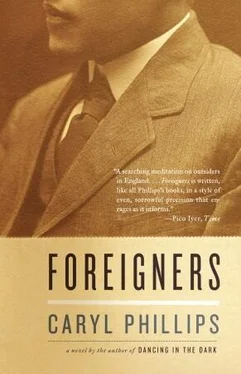Soon after Robinson's arrival, the Savoy Hotel in London had asked the American to leave, for the masses of fans that daily thronged the lobby and pavements outside of the hotel were making it impossible for the management to run the Savoy with the grace and decorum that their regular customers had come to expect. As a result the Sugar Ray Robinson party decamped to the Star and Garter public house in Windsor where the proprietors made every effort to accommodate the eccentricities of their coloured guests. On the morning of 10 July, Sugar Ray Robinson and his team departed for central London and the weighin. Once they reached Piccadilly Circus, Robinson's party were taken aback by the size of the crowds that had gathered in anticipation of the day's events. Crowds like this had not greeted him in France or in Belgium, or in any of the other places where he had displayed his flashy talents on his recent tour. It was clear that the somewhat depressed people of England, in their still bombed-out country, were in need of some kind of glamorous boost, and this being the case Sugar Ray was happy to provide this for them.
The weigh-in was scheduled to take place at just after noon at 'Solomons Promotions', and this would mark the first time that Turpin would set eyes upon the legendary Sugar Ray Robinson. Turpin had once again struggled to make his way through the crowds and into Jack Solomons' gym, but the Leamington man understood that although people were thrilled that a British lad was getting a chance to 'have a go' at Robinson, the vast majority of those in the streets, and the lucky ones packed into the gym, were eager for a glimpse of the hotshot American. His involuntary exile to the Star and Garter pub in Windsor had deprived Londoners of the chance of seeing the world champion and his entourage promenading through London, or going through their paces in Hyde Park. This would be their first and last chance to ogle the American before the title bout, and most London fight fans seemed keen to seize it. As Turpin stood beside the scales and waited, he remained calm and he appeared, to those who looked on, to be patient and focused. As noise and confusion continued to swell all around him, Turpin decided to sit down and stare at the ground between his feet and ignore the shouted questions from the mob of journalists.
Most of the sportswriters were convinced that Jack Solomons, and his 'yes man', George Middleton, had, in their quest for money, foolishly overmatched the promising coloured fighter with a man who was not only going to roundly wallop him, but a man who might well inflict serious and permanent damage on the youngster. The bookmakers' odds of seven to one on for a Robinson victory, and twenty to one against Turpin being on his feet at the end of the contest, suggested a forgone conclusion at best, and at worst a cynical attempt on the part of Solomons to cash in on Robinson's brief presence in Europe by throwing a dusky English lamb to the slaughter. Even if the coloured lad from Leamington did manage to stay out of Robinson's reach for the early part of the fight, he had never gone beyond eight rounds in his life, while Robinson had regularly fought fifteen-round pitched battles against American men of steel. But this did not deter the public who, once the fight had been announced, snapped up the 18,000 tickets to the Exhibition Hall at Earls Court in less than a week. Jack Solomons soon realised that he could have sold twice as many tickets, which ranged from ten guineas at ringside, to one guinea in the rafters, and doubled the £80,000 gate by putting the fight in a larger venue. Robinson versus Turpin was not only the highest profile fight in British boxing history, it was destined to be the biggest single sporting event ever held in Britain. Young Randolph Turpin's part was already written: to take his punishment like a man and put up a good show, and the unusual nature of his preparation suggested that he fully understood the script.
A year earlier, in the summer of 1950, Turpin, together with his brother Jackie, moved temporarily from Leamington Spa to set up training camp in Wales. The fight with Robinson had not yet been made, but Turpin had got it into his head that by moving away from the distractions of his home town he could better concentrate on preparing himself for the business of championship boxing. A Wales-based businessman named Leslie Thomas Salts had recently purchased Gwrych Castle near Llandudno, which had been originally constructed in 1819 and over the years had fallen into some disrepair. However, it still remained a magnificent listed property with a view of the Irish Sea, a famous marble staircase, dining rooms, smoking rooms, a billiard room, and over 200 acres of land that included stables and extensive lawns. Intending to open the place to the public as 'the Showplace of Wales', Salts had installed rides and attractions for children, but it occurred to Salts that having professional boxers training and sparring on his grounds, and charging the public to watch, might well be a further source of income. And so it proved. His first boxer was the British heavyweight, Bruce Woodcock, but Salts soon realised that the amenable and charismatic Turpin would most probably be a better drawing card. Turpin was initially overwhelmed by his first sighting of the huge, stone-walled fiefdom, with its acres of open, rolling hills, and the castle presiding high up on a hillside. The spectacular estate possessed a verdant grandeur that exceeded anything Turpin had ever seen or imagined. He was safe in this private kingdom, in which he was the prince to Salts' king, and he could temporarily escape his upbringing, his past, and imagine himself to be a man free of the considerable pressure of being obligated to family and friends. However, Turpin's manager, George Middleton, was not happy with his fighter retreating to Wales for he did not regard Leslie Salts as a straight shooter, but he knew that once Randolph Turpin had made up his mind there really was little point in arguing with him.
In the late summer of 1950, Turpin fought a tough opponent, named Eli Elandon, and defeated him in under two rounds, and therefore the relative isolation of the castle as a training base seemed to have worked. Once the world title bout with Robinson was announced, Turpin decided to move back to Wales in order that he might prepare for the biggest fight of his career. This time, rather than have Turpin training up on the hillside, the opportunistic Salts moved Turpin's camp to the more spacious east lawn and put up a huge sign: COME AND MEET A BRITISH CHAMPION AT SUNNY GWRYCH CASTLE.
Come they did, and they paid two shillings to see Turpin jogging lightly towards the ring like a gladiator in his white robe, flanked on one side by his smaller brother Jackie, who carried his gloves, and on the other side by a sparring partner who would soon be given a thorough goingover. Salts was making good money not only out of admission fees, but from selling autographed souvenirs. The constant flow of sparring partners, including Turpin's brother Jackie, all felt underpaid and underappreciated, often having to go down into the town in order that they might find a decent meal. However, Salts had managed to work his way into the full confidence of Turpin, and the fighter's mind remained fixed on the discipline of training. In fact, Turpin was content to leave all business and financial arrangements to Middleton and Salts.
Britain in the early fifties was a desolate place whose urban landscape remained largely pockmarked with bomb sites. Derelict buildings and wasteland spoke eloquently to the pummelling that the country had taken in the recent war, but the government lacked the resources to do anything about this bleak terrain. Victory against Germany had been achieved, but at a price that some now considered simply too high. While Allied money flowed into Germany to help rebuild the defeated nation, six years after the war Britain appeared to have stagnated economically, its confidence shot, and its people suffering. Thousands of servicemen had returned after the war only to discover that there was no industrial machine for them to rejoin, and that jobs were scarce on the ground. The women who had manned the factories during the war found it difficult to readjust to their old roles as housewives and mothers, and those for whom privilege had been an accepted part of their pre-war life soon discovered that the introduction of a welfare state, with free health and education for the working classes, heralded a challenge to their assumptions of class superiority. Britain was depressed and good times seemed a long way off. The average Briton still utilised his ration book and had to remember to count each penny, and day trips to glamorous locations like Gwrych Castle were to be savoured. The opportunity of seeing boxers in action, particularly champion boxers like young Randolph Turpin, brightened up everybody's lives. When it was announced that Sugar Ray Robinson would be visiting Britain, and that a British lad would be given the chance to enter the ring and go a few rounds with him, this was a shot in the arm to the blighted confidence of the British people. Everybody was excited that the Sugarman, pink Cadillac and all the rest of it, would soon be in town.
Читать дальше











![Unknown - [Carly Phillips] The Bachelor (The Chandler Brothe(Bookos.org) (1)](/books/174132/unknown-carly-phillips-the-bachelor-the-chandle-thumb.webp)
